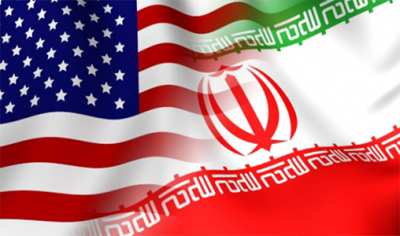US Betrays Iran Deal as Predicted – Edges Closer to War

This article was first published on February 2, 2017
As the world remains mesmerized by the antics of US President Donald Trump, his national security adviser Michael Flynn brazenly linked Iran to Yemeni fighters who attacked a Saudi warship, as well as cited an Iranian missile test as grounds to reverse course on US rapprochement with Tehran, concluding that Iran was “put on notice.”
Flynn would state:
In these and other similar activities, Iran continues to threaten US friends and allies in the region.
Flynn, who was head of the US Defense Intelligence Agency (DIA) when a memo was published acknowledging the West, Turkey, and the Persian Gulf monarchs sought the rise of what was at the time called a “Salafist principality” in eastern Syria – precisely where the Islamic [Salafist] State [principality] now occupies, is surely aware that America’s “friends and allies in the region” include state sponsors of terrorism, including the state sponsors of the Islamic State itself.
As Flynn furiously flipped through the pages of his statement, he was signifying the predictable betrayal of the so-called “Iran deal,” meant before it was even introduced the public – as early as 2009 – to serve as a pretext not for peace, but for war with Iran.
US corporate-financier funded think tank, the Brookings Institution, in a 2009 policy paper titled, “Which Path to Persia? Options for a New American Strategy Toward Iran” (.pdf) would lay out in detail various means of provoking war and regime change against Iran.
In it, Brookings explicitly revealed how a “superb offer” would be given to Iran, only to be intentionally revoked in a manner portraying Iran as ungrateful:
“...any military operation against Iran will likely be very unpopular around the world and require the proper international context—both to ensure the logistical support the operation would require and to minimize the blowback from it. The best way to minimize international opprobrium and maximize support (however, grudging or covert) is to strike only when there is a widespread conviction that the Iranians were given but then rejected a superb offer—one so good that only a regime determined to acquire nuclear weapons and acquire them for the wrong reasons would turn it down. Under those circumstances, the United States (or Israel) could portray its operations as taken in sorrow, not anger, and at least some in the international community would conclude that the Iranians “brought it on themselves” by refusing a very good deal.
The so-called “Iran deal,” introduced during the administration of US President Barack Obama, represents precisely this “superb offer,” with Flynn’s accusations serving as the “turn down” ahead of the “sorrowful” war and attempted regime change the US had always planned to target Tehran with.
In fact, Flynn would seemingly draw almost verbatim from the ploy described by Brookings in 2009, by stating:
Instead of being thankful to the United States for these agreements, Iran is now feeling emboldened … As of today, we are officially putting Iran on notice.
Flynn’s statement is particularly surreal – considering Yemeni fighters are only targeting Saudi warships because Saudi Arabia is currently waging full-scale war on Yemen. Accused on all sides of war crimes, and with the US itself even restricting weapon sales to Riyadh – if only symbolically – in response to Saudi Arabia’s aggression – Flynn still claims that the attack on Saudi Arabia’s warship constitutes justification for putting Iran “on notice.”
Claiming that Iran is “sponsoring terrorism” throughout the region, when it is currently a major member of the coalition fighting the DIA’s “Salafist principality” in both Iraq and Syria is also surreal.
Another prerequisite mentioned in the 2009 Brookings document was the need to move Syria out of the way. It appears that the US’ attempts at regime change in Syria have reached their final conclusion, failing overall, but weakening Syria significantly in the process. War on Iran – a nation taxed greatly in fighting US, European, and Persian Gulf-backed terrorist organization in Syria – may be perceived now as more preferable than before the 2011 conflict began.
Meanwhile, the political climate in the West has been so expertly manipulated that the public is either so distracted with identity politics that they are unaware and unconcerned with the prospect of war with Iran, or so hysterical over “Islam” that any nation perceived as being Muslim is seen as justifiably a target of US military aggression – regardless of how divergent any of these alternate realities are from actual reality.
Flynn’s statement encapsulates a documented conspiracy drafted under President Bush, implemented under President Obama, and finally coming into full fruition under President Trump, once again illustrating the continuity of agenda that transcends party politics, presidencies, and political rhetoric – driven by immense corporate-financier special interests, not the will of the American public.



